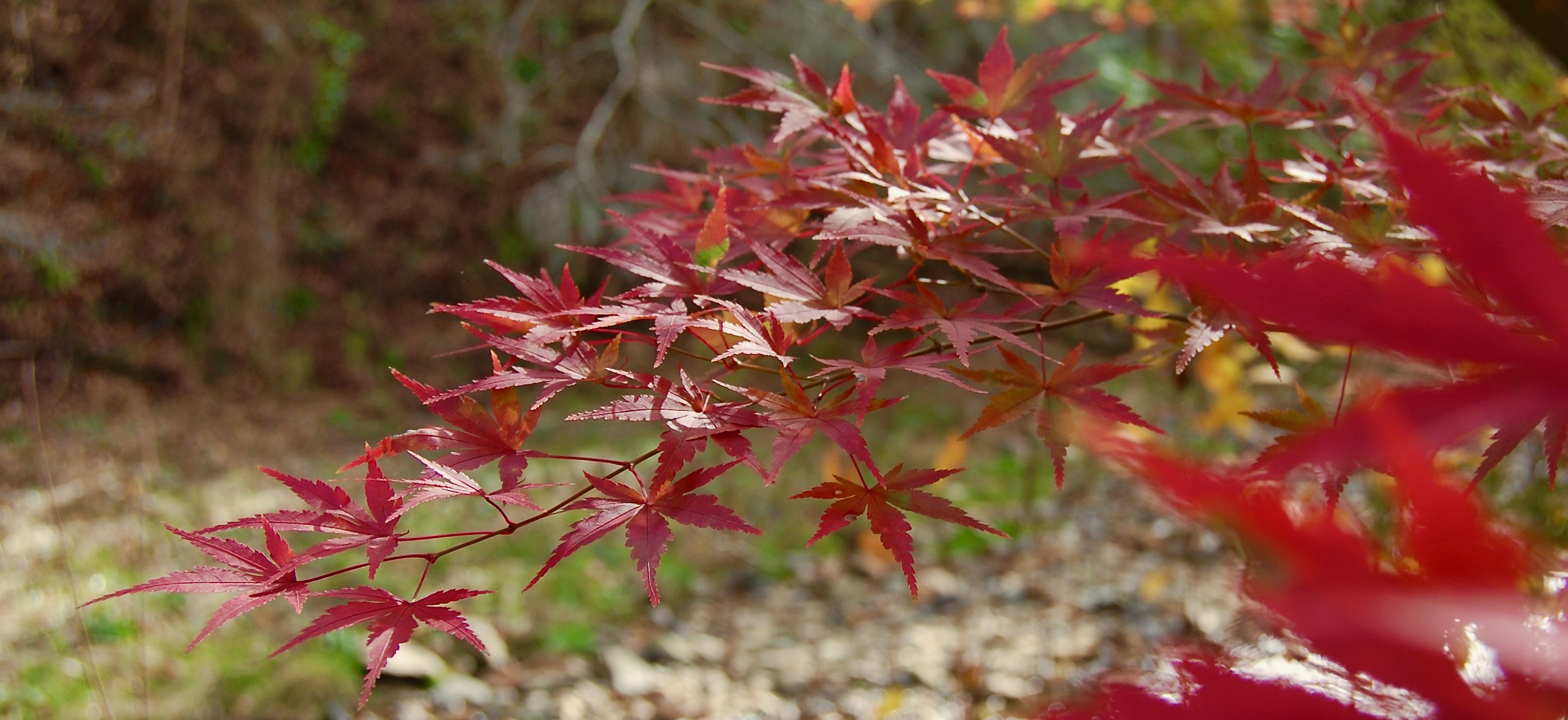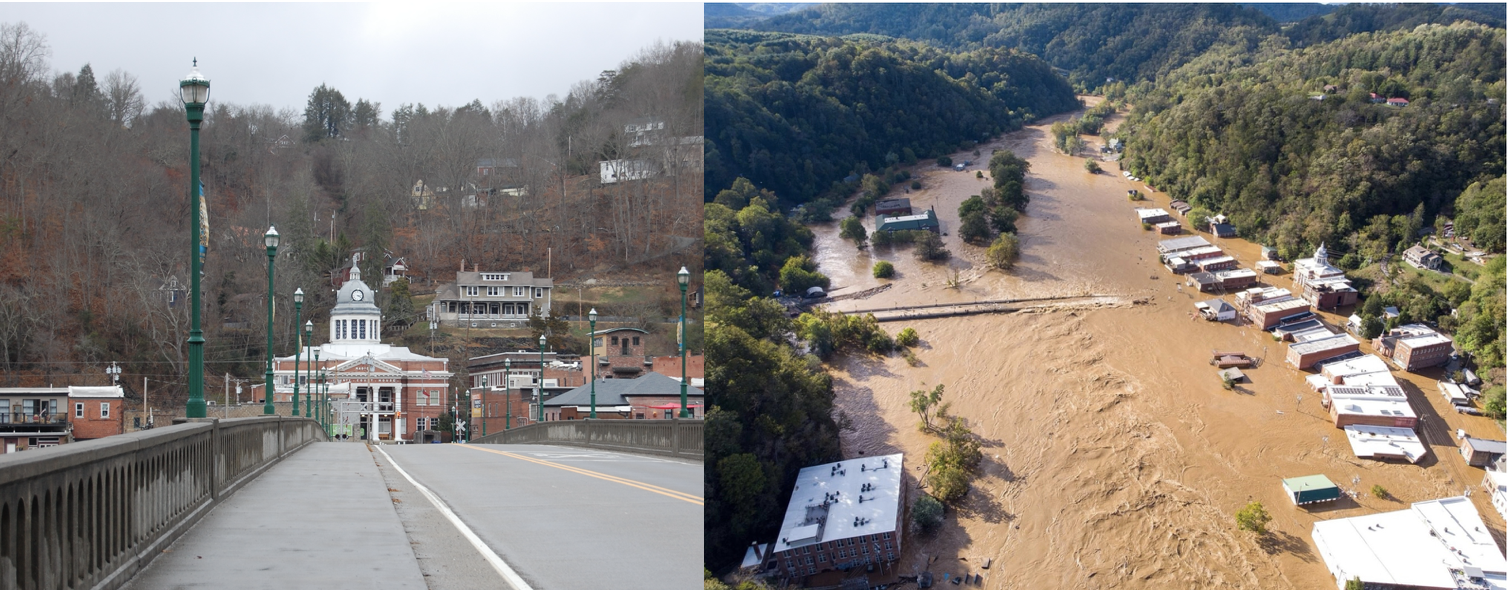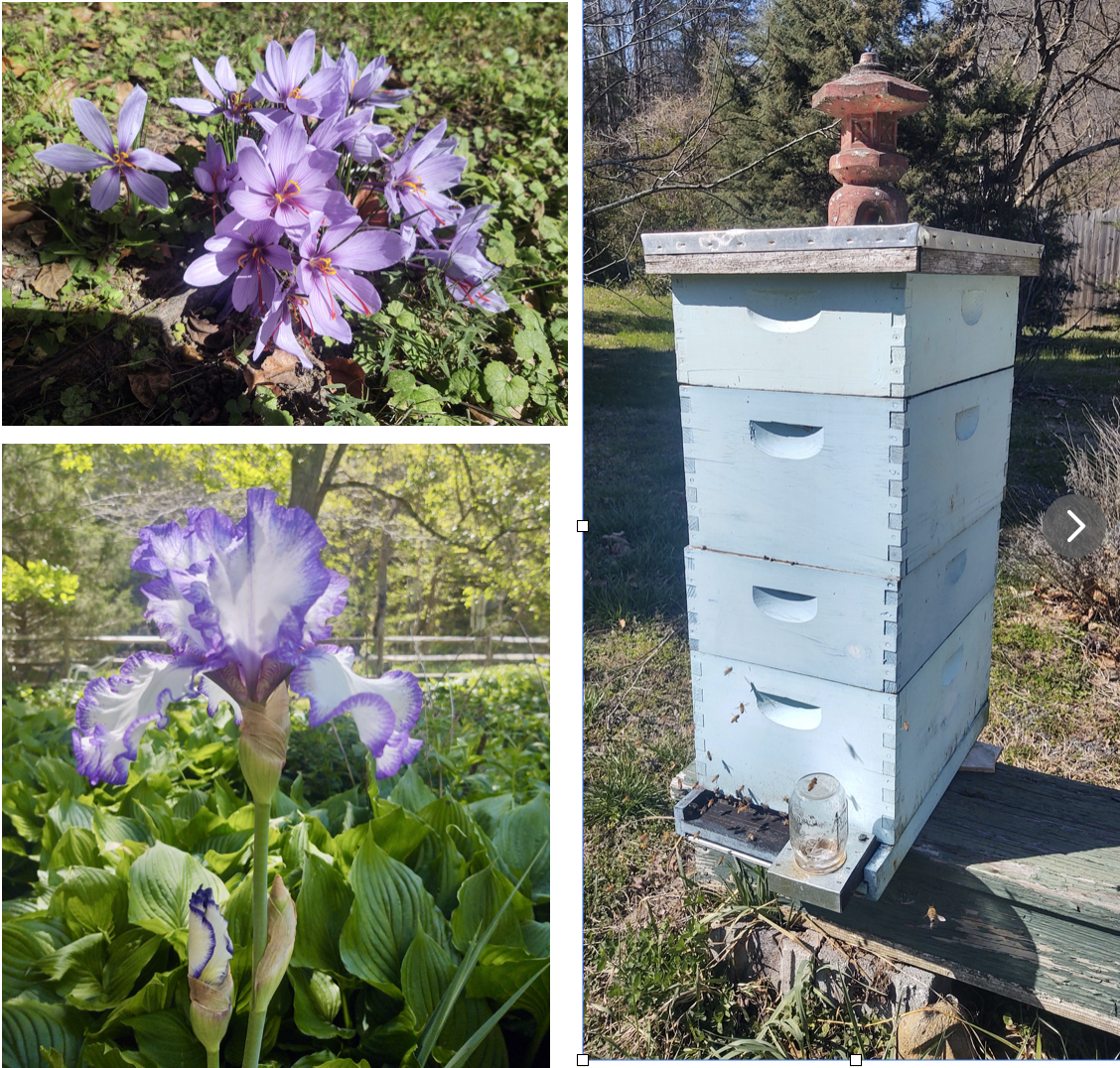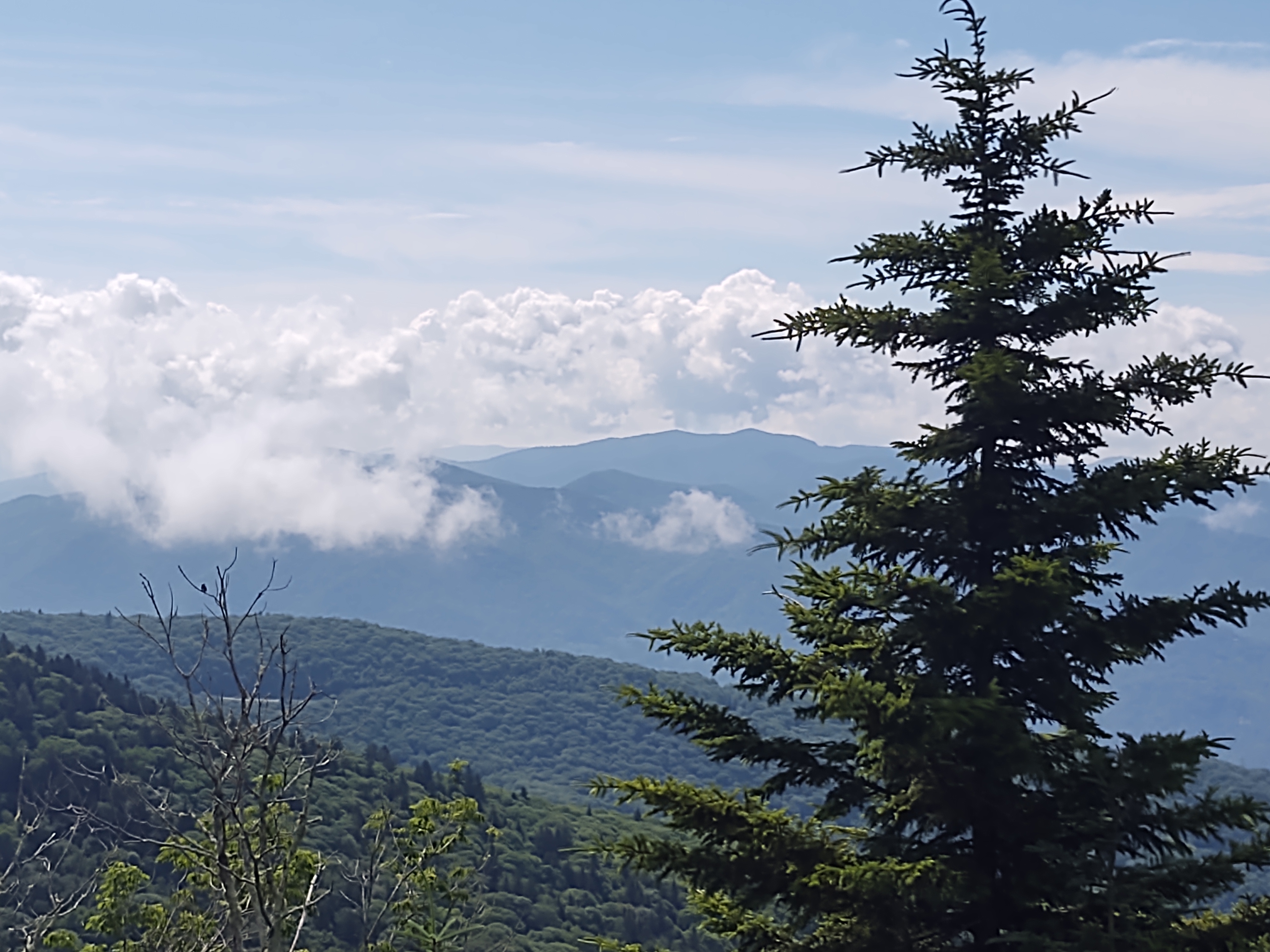Jeff and Val's 2024 Holiday Letter

We hope you and your loved ones are well and have a lot to celebrate this holiday season!
For this year's holiday "novella," we’re trying out using Jeff’s coffee ecommerce site. It should be hidden from the website’s menu, but you can navigate to other parts of the website from here.
A Difficult Year
Jeff had some ongoing health issues. This resulted in his spending a few days in the hospital from hell. (Our formerly excellent main hospital in Asheville was bought a couple of years ago by a national for-profit system. Since then nurses have unionized; a bunch of doctors left--and are still leaving; various counties--including ours--and the state have filed lawsuits; and it nearly lost its Centers for Medicare & Medicaid Services reimbursement.) Luckily, he was able to drive himself home from the hospital and resume coffee roasting a few days later. Since then, it’s been months of seeing a bunch of healthcare providers (including our primary care doctor, who has been keeping a close eye on him) and having a lot of tests. Looks like he’s cancer-free and otherwise stable now. Whew!
You may be aware that our area, western North Carolina (WNC), experienced its worst disaster in recorded history in late September. We were super lucky that Storm Helene shifted a little bit east (although this was super bad for areas that had already received rain from another system before Helene), so our valley and house were not affected. It also helped our valley that our creeks had been scoured out by Storm Fred a few years ago, so while they rose to their banks during Helene, we had no flooding. We amazingly only lost power for a couple of days. Jeff’s coffee roastery near the town of Mars Hill was untouched and quickly got back power, too.
But our good fortune doesn’t mean we weren’t affected by Helene. We have been so sad about the tremendous amount of losses in WNC.
Some of these directly affected our friends. One set of friends who live in the mountains north of Charlotte had a lot of damage to their dream house when the river they live next to rose high enough to take out part of the foundation (built several feet high off the flood plain). Thankfully, they were able to evacuate up to another house they own in the area. A woman Jeff was acquainted with and who had lived with Val’s hair stylist a few years ago was washed away with her fiancé and two young sons in the unexpected, quick rising flood waters of Yancey County (the county just east of us). Adding more agony, it took several days before their bodies were found. One of Jeff’s customers, also in Yancey County, had her coffee shop destroyed by the usually small stream that flows nearby.

Left: Marshall in 2022 (Val's shot). Right: Marshall near the height of 2024 flooding; note that's the same bridge with the courthouse on the right (photo from Old Marshall Jail Hotel).
Our beloved tiny river town of Marshall endured flooding from the French Broad River that was at least twice as high as the previous area devastating flood in 1916. It wiped out several buildings entirely and washed out and/or mud covered the contents of at least the first floors of the remaining buildings. Another friend, who is a co-owner of one of the craft galleries there, is affected by this. Our post office (with Jeff’s and Val’s separate PO boxes) sustained so much damage, it will need to be rebuilt (probably not down there)—we now have to go to Weaverville, about 20 minutes east, to get our box mail.
Another tiny river town in our county, Hot Springs, experienced severe flooding when Spring Creek, running through the middle of the town, could not exit as normal into the French Broad River. The French Broad, swollen with nearly the entire watershed (from the headwaters in Rosman, NC, through Asheville and the flooding Swannanoa River, through Marshall and more creeks—including ours and the Big Laurel), was so high it formed a wall of water that blocked Spring Creek's waters and backed them up into the town. Yes, some flooding also came from the French Broad and the warm springs were affected. The town (and other parts of our county, including near us) is also experiencing lots of traffic now as drivers heading to and from Tennessee divert through it because two major highways between Tennessee and North Carolina are either totally or partially shutdown at the border from Helene-caused landslides.
Asheville, where we go for medical care, most of our shopping, and eating out, has suffered a lot. It didn’t have electricity for at least two weeks; parts of it didn't have cell service or internet for a couple weeks beyond that; it didn’t have running water for even longer (water lines from the main reservoir blew out from flooding); when it got running water it was discolored and nonpotable (no washing, no cooking, only flushing) until nearly eight weeks after Helene (the once super clean reservoir got so stirred up it required assistance from the Army Corps of Engineers to settle it down and install sediment filters it never needed before). Parts of the city we (and locals and tourists alike) had enjoyed (Biltmore Village, River Arts District, etc.) are now severely damaged and/or entirely gone.
Val’s car was also a victim of Helene in AVL. It had been at the dealership for repairs and was ready for pickup when the storm hit. The day after, a nearby creek rose out of its banks and flooded not just Val’s car but a bunch of vehicles, including some owned by staff. The water got up to the dashboards of those cars and they were all totaled. The dealership buildings were damaged but are quickly being repaired. Ironically, the dealership is next door to the WNC Agricultural Center was used to house Ashevilleans displaced by the storm’s flooding/landslides/fallen trees and provide hot showers (since that area gets water from another water source). Further irony is that the dealership was able to save (“at the last-minute”) some cars by moving them higher up on part of the Ag Center’s property. And Val’s “new” pre-owned certified car was one of those saved. So many other area vehicles also were totaled that one insurance company sent a semi with a multi-car two-deck trailer with a bunch of other wrecked cars already loaded to pick up its totaled cars from this dealership.
Across the WNC counties, FEMA housed 10,000 households in mostly hotels and motels. FEMA recently extended this program to more than 4,900 families still receiving this temporary recovery support through the holidays. Some people who lost their homes because of flooding and/or landslides chose to remain on their properties and are toughing out winter in tents, yurts, campers, and sheds.
Thankfully, in addition to local heroes and organizations, the area also has received a lot of outside support from nonprofits, fire departments, individuals, and families from across the country for prepared meals, potable water, mobile clothes-washing facilities, mobile showering facilities, warm temporary housing, cleaning up tons of mud and debris, repairs, etc. But WNC relies a good bit (too much?) on tourism, and there’s a big economic impact to have all this destruction during the peak of the leaf-peeping season.
Pax
After about nine months of rather intensive training that started last year, Pax is now calmer when encountering other dogs, cats, geese, goats, and certain older guys. He also gets along better with other dogs in group situations. This was achieved thanks to a great training/socialization center in Asheville (and daily “parental” reinforcement). Sadly, the training center, which was situated next to the Swannanoa River near Biltmore Village, was badly damaged in Helene. They’re not sure yet how they’ll bring it back. (Many businesses along this big tributary of the French Broad received so much flood damage--with cargo containers and UHaul vehicles floating downstream; and a long section of the main road, along with bridges across the river, has not yet reopened or even been worked on.) We think Pax still needs (and enjoys) the group socialization he got there, so we’re hoping they’ll be able to find another location.
The Great (surprisingly fierce) Hunter, however, did not become calmer about wild animals in our yard.

In late summer, Pax let us know there was some animal making a home under our front porch. Val looked out the window and saw a groundhog squeeze through fence pickets and then sit, like it owned the place, on the front porch. She chased it off and began several days of stuffing and replacing rocks around the front porch so it couldn’t get back in. Then one afternoon while Val was out, Jeff heard what the trainers call “the infamous Pax scream” and there was Pax fighting with the groundhog in a flower bed. Jeff joined the fight with various human tools and let’s just say the groundhog took a one-way ride down Little Pine Creek. There were no injuries to Jeff or Pax, which is good because we found out a couple weeks later that groundhogs are like bats and carry rabies without symptoms.
One evening after Helene, Jeff and Val heard Pax and another animal screaming in the yard. This time Pax had taken on a young racoon (or it could have been the other way around). Jeff tried pulling Pax away from the racoon, but it continued to go after Pax. So Pax fought back and appeared to be winning the fight. Val and Jeff went for the human tools and managed to get Pax away from the racoon and into the house. Then another wild animal took a one-way ride down the creek. Jeff and Val were uninjured. After an inspection and a wipedown, surprisingly Pax appeared not to have any injuries from his fight. He got a rabies booster the next day.
The Chicken Chronicles
To our surprise and happiness, all five hens are still clucking along. Looks like our Golden Wyandotte “Lacy” is no longer laying (we think she laid one very small egg this year). And our Barnvelder “Beauty” is still laying occasionally. The Auracanas (or are they Americaunas?) are still laying but slowing down as they all age.
Beekeeping
One of Jeff’s three hives made it through last winter and produced a fair amount of honey this year. He ordered two new nucs (a small set of bees accompanying a queen) in the spring, but these arrived dead. So he got started two more new hives, but one did not make it. The remaining hives have grumpy bees that sometimes chase Val a long way. Val misses the sweet bees in years past that would land softly on her hand and gently crawl around to say hi. Apparently, though, aggressive bees tend to produce more honey.

Garden
Plants grew like crazy this year. Val ended up spending lots of her first year of retirement weeding more than usual, trimming bushes back, and fighting with wisteria vines. On the other hand, there were lots of perennials blossoming, too. Thanks to a winter cover crop of peas, our corn harvest was a little better than the year before (with the benefit of being able to add fresh pea shoots to salads in late winter). Jeff also planted the purple-flecked green bean variety Val liked so much last year around the corn stalks, which provided a decent harvest. Despite not being able to stake up the vines, we had a lot of tomatoes, especially cherry varieties (which had less blight than the plum tomatoes). The mild varieties of peppers did fairly well. Jeff also planted cucumbers and summer squash; the cukes did pretty well, but the squash got overwhelmed with squash bugs. We got a good amount of okra late in the season. And our chestnut tree produced a whole dozen chestnuts!

More Outdoor Activities
We did not kayak at all this year (Val’s first year not on any whitewater in 32 years). It’s looking like we’ll able to paddle next year, but it will be really different in our area. The flooding in Yancey County rerouted some of the relatively easy rivers we’ve paddled there in the past, taking out homes, bridges, and railroad tracks with it. The Green River down in Polk County, which has been a spring warm-up and occasionally a winter paddle for us, also has been rerouted in spots with put-in/take-out parking areas entirely wiped out. The French Broad, which has at least 3 whitewater sections on it, had so much flowing down it, there will probably still be debris from homes, other buildings, cars, trees, factories, etc., in it for years. We drove over the bridge at Barnard, the put-in for Section 9, a few weeks ago and there was still a large shipping container wrapped around one of the bridge footings and a huge pile of tree debris against another footing--Val was surprised vehicles were even allowed on the bridge. A PVC pipe factory just outside of Asheville on the banks of the French Broad lost so many pipes in the flooding that they line the river all the way down to where the river is impounded in Tennessee; there’s currently a bunch of pipes along Section 8, which we cross over to get to our house.
We did some hiking before Helene struck. But hiking after Helene in a lot of areas is risky. Helene also caused wind damage, some unconfirmed tornadoes, and nearly 2,000 landslides (as of 11/6/24 per the USGS). Sections of the Blue Ridge Parkway in North Carolina, off of which we often hike (the photo above is from such a hike pre-Helene, shot by Jeff), are still closed (with roads that slid off the mountainsides still needing to be restored). Large areas of the national forests in WNC, especially those affected by fallen trees (including the Pisgah National Forest in our county), are still closed to the public.
More Wildlife Encounters
This was definitely a direct wildlife encounter kind of year!
Val accidentally stepped on one of our resident black snakes in our yard. The mowed grass was a bit tall and she did not see the snake until after she stepped on it, wondering what was that differently squishy thing she just stepped on. (We walk on a lot of squishy stuff on our property, usually mole tunnels.) It was a medium-sized one, and she was already well past it when she looked back. Good thing, too, because it had reared up in surprise. Val worried she had hurt the snake (we like nonpoisonous snakes here because they help keep down the rodent population), but it appeared to be OK as it quickly slithered away.
A bat got into our house one evening while Jeff was coming into the house. He thought it had left, so he didn’t tell Val about it. But while he was sleeping, he thought he might have felt something fly by. While Val didn’t know a bat was in the house, she thought she heard some squeaky sounds at some point. (This is an old house so there’s lots of squeaky sounds.) The next day after Jeff told Val about the bat, she found it sleeping on the rafter in the sunroom. Jeff put on long leather gloves and caught the sleepy bat the way we catch honeybees in our house (putting a container over the bee/bat, sliding a piece of thin cardboard underneath bee/bat and container, and letting it fly free outside (in the bat’s case, rest on a log for awhile).
Each year around late summer, a wren decides to check out our wood stove (heater) chimney and gets trapped in the empty stove. When we hear the now-familiar knocking around, we get to have the fun (not!) of chasing the poor bird around the house, trying to herd it out the sunroom door. This year, just a couple of days after this year's "visit," either the same wren or another one came back for another chase!
Work (?!) Activities
Jeff is still roasting coffee. He gave up doing tailgate markets himself (another person is selling his coffee at her own "outlet"). His biggest coffee “shop” customer was affected by the Asheville water situation, but most of his other wholesale customers were unaffected by the storm. He also still serves on our county’s Chamber of Commerce board of directors.
A big part of Val’s retirement journey is learning and practicing tai chi “for health.” This version of tai chi was adapted by health providers to help those living with arthritis and wanting to work on fall prevention. She became interested in doing this a couple of years ago when she was writing a grant report for a fall prevention program. She took a beginner’s class taught by retired physical therapists in AVL in January and has since taken two “intermediate” classes. She plans on continuing the classes next year. She practices tai chi almost everyday.
The Holiday Card
This year’s holiday card front photo is of a Japanese maple growing streamside outside our kitchen. It usually does not turn this red in the fall!
